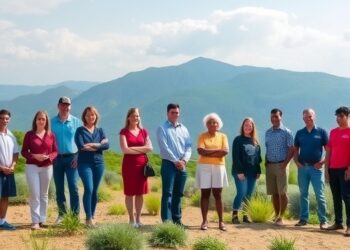COLORADO SPRINGS, Colo. — Worsening air quality and temperature extremes are linked to increased stroke burden, according to a study presented today at the Society of NeuroInterventional Surgery’s (SNIS) 21st Annual Meeting. This trend disproportionately impacts underserved U.S. communities, including those with lower incomes and a lack of health resources.
COLORADO SPRINGS, Colo. — Worsening air quality and temperature extremes are linked to increased stroke burden, according to a study presented today at the Society of NeuroInterventional Surgery’s (SNIS) 21st Annual Meeting. This trend disproportionately impacts underserved U.S. communities, including those with lower incomes and a lack of health resources.
The study, “Climate and Stroke: Using the Climate Vulnerability Index to Identify Disparities in Stroke Burden and Access to Care” examined the interaction between a community’s estimated vulnerability to climate change, self-reported cases of stroke and distance to a comprehensive stroke center (CSC), a hospital with certified neurointerventional specialists who can perform thrombectomy, a minimally invasive procedure that uses a catheter to reopen blocked arteries in the brain.
Researchers learned that stroke prevalence was higher in areas with higher climate vulnerability scores, especially in the Southeast and the Midwest. Across the entire country, stroke incidence was 1.5 times higher in areas with the highest climate vulnerability scores (in the top 10th percentile in the Climate Vulnerability Index) compared to areas with lower scores (in the 50th percentile). Rural areas were especially likely to have high levels of combined climate vulnerability and stroke prevalence.
Compounding the potential impact on underserved communities, those with the highest levels of climate vulnerability were 2.67 times farther away from a CSC than communities with lower climate vulnerability.
The team concluded that baseline health, socioeconomic and infrastructure disparities between communities largely explained the connection between high stroke prevalence and high climate vulnerability. The researchers noted that it’s essential to address the inherent causes of communities’ financial instability, lack of medical resources and climate vulnerability before these disparities worsen. In one detailed analysis, the researchers saw that areas in metropolitan Atlanta that were previously subjected to redlining (discriminatory housing practices that deny financial services to individuals based on their race or ethnicity) also had higher levels of stroke prevalence and climate vulnerability.
“This study supports the hypothesis that community-level disparities may impact your health,” said Rebecca Achey, MD, primary author of the study and a neurosurgery resident at the Cleveland Clinic. “It’s essential that we do more to ensure quick access to stroke care among at risk groups while also addressing the underlying drivers of the climate change-stroke association.”
To receive a copy of this abstract or to speak with the study authors, please contact Camille Jewell at cjewell@vancomm.com or call 202-248-5460.
About the Society of NeuroInterventional Surgery
The Society of NeuroInterventional Surgery (SNIS) is a scientific and educational association dedicated to advancing the specialty of neurointerventional surgery through research, standard-setting, and education and advocacy to provide the highest quality of patient care in diagnosing and treating diseases of the brain, spine, head, and neck. Visit www.snisonline.org and follow us on X (@SNISinfo) and Facebook (@SNISOnline).
###




